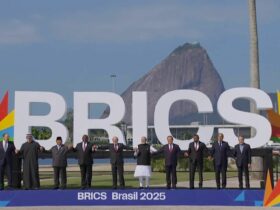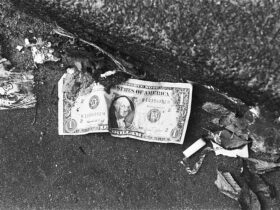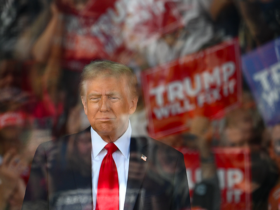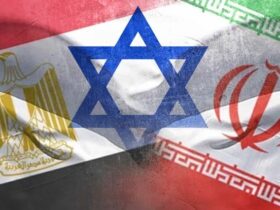Reporting from Brazil
Lula da Silva decided to make his first official international visit, since he assumed the presidency of Brazil for the third time, to Argentina, thus affirming the strategic relationship between the two largest economies of the Southern Common Market (Mercosur). The visit took place within the framework of the VII Summit of Heads of State and Government of the Community of Latin American and Caribbean States (CELAC), a space for regional integration that brings together 33 Latin American countries, and which has excluded since its founding, in 2011, the United States and Canada. Brazil was withdrawn from CELAC during the Bolsonaro’s government.
CELAC is essentially a space for political consultation. In fact, its current president pro tempore, Alberto Fernández, rejected the blockades against Cuba and Venezuela in his opening speech, a position that was also joined by Lula and other present leaders.
However, the news that has had the greatest impact was the announcement by the Ministers of Economy of Argentina and Brazil, Sergio Massa and Fernando Haddad, about the study of the proposal for a common currency that seeks to facilitate, encourage and increase bilateral foreign trade. Currently, the trade balance between Brasilia and Buenos Aires is reconciled in US dollars.
At a press conference, Lula gave his opinion on this proposal: “If it were up to me, Brazil would always have foreign trade in the currencies of other countries, so we wouldn’t need to depend on the dollar. Why not create a common currency among the Mercosur countries? Why not create a common currency among the BRICS countries? I believe that this is going to happen over time and I think it needs to happen because many countries have difficulties acquiring dollars. And that prevents agreements from being reached. God willing that our ministers and presidents of central banks have the intelligence, competence and wisdom necessary for us to make a leap in quality in our commercial and financial relations.”
What was the announcement about?
The announcement was the political decision at the highest level and with the signing of a Joint Declaration to advance in the study of the proposal for the implementation of a mechanism, as well as their respective virtual monetary compensation tools that allow increasing trade between Argentina and Brazil without using dollars. In this regard, the Argentine Minister of Economy, Sergio Massa, stated: “We are going to begin to study the necessary parameters for a common currency that includes everything, from fiscal issues to the size of the economy and the role of central banks.”
For his part, the Minister of Economy of Brazil, Fernando Haddad, declared that it is not a “unified currency” but a “means of payment” between Argentina and Brazil: “We are not defending the unification of our currencies. We are defending an engineering that is not like payment in local currency (proposal by Bolsonaro’s economy minister), which – according to Haddad – did not work. Our proposal does not reach the level of monetary unification, as is the case with the Euro”.
Joint declaration: What are the official details that we know so far?
Objectives: The objective is to strengthen and return to recording progress in the historical commercial relationship between Brazil and Argentina. For that, the governments of the two countries are deepening understandings to improve the bilateral flow of business. Among the measures announced by Lula da Silva and by Minister Haddad, there are two financing instruments and creation of a common currency, initially between the two countries.
Stage of the institution: The constitution of a working group that will be dedicated to studies aimed at creating the common currency for business between Brazil and Argentina was approved. The formation of this group is part of a memorandum signed by Lula da Silva and Alberto Fernández on the use of the Fund of Warranty for Exportation (FGE) to ensure credit lines from private and public banks in Argentine import operations of Brazilian products.
Central problem: The central point is the difficulty of accepting Argentine pesos in the international market, due to the inflationary process in Argentina, and the momentary reduction of dollars, the main foreign exchange reserve currency in the world, which can restrict transactions in the neighboring country. Another objective is to increase the competitiveness of the trade flow between the two countries with credit mechanisms that compete with those of third countries.
Next step: In the second moment, it will be decided how to institute a type of collective governance over this unit of account and means of exchange. This governance can serve for commercial operations between countries in the region, which can encourage better monetary management practices, inflation, sustainability of the fiscal and environmental relationship, among other aspects.
What are the main fears?
As is evident, the implementation of this mechanism could not have, at this point in the process, that is, as soon as the preliminary studies are carried out, neither a defined form nor a date, but rather -at best scenarios – just designing your structure could take several months. It is in this sense that we say that the main fears, as well as some of the controversies, are imaginary. This is not to mention that some of the criticisms that this announcement has initially received point to unhappy endings, since several analysts believe that its implementation will never happen.
All the more reason, its implementation (or not) is something that is still on a distant horizon. However, many have taken advantage of this moment of uncertainty to spread fake news, supported by maybe technical ignorance but surely political interests. Let’s remember that both the government of Alberto Fernández, who is going through his last year in office in 2023, and that of Lula da Silva, who has just started, face great criticism and instability. That is to say, they are governments surrounded by a certain fragility and instability, sometimes political, sometimes economic, sometimes both.
Likewise, it must be clarified that the current currencies in force in Argentina (peso) and in Brazil (real) will not stop circulating nor are they in danger of disappearing or losing strength as a direct consequence of the implementation of a new virtual means of payment. The common currency, which Lula has proposed to be called “SUR”, could not affect the currencies in current use in Argentina and Brazil, as does the dependence on the US dollar.
Fears are then spreading, from Brazil, due to the macroeconomic situation that Argentina is going through: annual inflation of 95% (2022), the highest in South America, only behind Venezuela; the renegotiation of the foreign debt with the IMF, which keeps Argentina’s international reserves at very low levels (37.000 USD million, less than 7% of Argentine GDP), among other factors, which make it impossible to think of Argentina as a reliable and predictable partner.
Despite this, Brazil is Argentina’s first trading partner. In 2022 the bilateral trade balance has been in deficit for Argentina, closing at more than 2.000 USD millions of favorable balances for Brazil. The South American giant is interested in Argentina being able to continue importing Brazilian products, and this is where the proposal is attractive for both countries, but it does not stop there neither with these two countries, as Lula itself explained at the beginning of these article.
So, why does Brazil want to do business with Argentina without depending on the dollar? Brazilian government also thinks that: “trade between Brazil and Argentina is constrained by the availability of the currency (dollar) of a third country, not participating in this trade. Today, one country (United States) holds its national currency as international currency. For the Brazilian government, it makes no sense for the region to be constrained in its trade due to the result of the monetary policy of a third country that is not participating in that trade.”
United States’ reaction: The real danger
Now, there are very well-founded fears based on the fact that the mere idea that the US dollar loses power in international trade could mean a regional and global conflict with unfortunate precedents, as result of the reaction of the United States: Muammar Al Gaddafi, for example, also intended to implement a common currency, the gold Dinar, to end the hegemony of the dollar. It is well known what ended up happening with the Libyan leader and with his country.
Other countries have tried to promote – with less or more success – similar proposals, including China, Russia, India, Iran, Turkey, and even Hugo Chávez’s Venezuela. All of these countries and their respective governments have felt the American fury for daring to question and confront United States global hegemony where it hurts most, the heart of the US economy. All these countries have had to suffer threats and sanctions from the United States and its allies. However, at present the US economy seems to be losing its strength and its ability to coerce, perhaps the current proposal from Argentina and Brazil, as well as the rest of the initiatives to achieve monetary independence and better conditions in international trade, may take advantage of this moment of “weakness” of the global North. What seems unlikely is that there will be no intervention by the economical global powers to stop these initiatives.
“And by the way: China…”
Finally, how does China enter this context of seeking to strengthen trade relations between Brazil and Argentina? “China has been assuming a role that belonged to Brazil in trade with Argentina”, said the Brazilian government. The Asian giant country “has been proposing solutions to Argentina by financing the import of Chinese products.” Brazil is trying to build solutions for the space it has lost due to the restrictions that Argentina currently suffers from access to a convertible currency.
What kind of “solutions” has China been proposing to Argentina? Currency swap is one of them. China started to give an exchange rate swap line (currency exchange) to Argentina. As a result, Argentine businessmen now have Chinese currency to buy their products. This could be the path to following.

















Leave a Reply